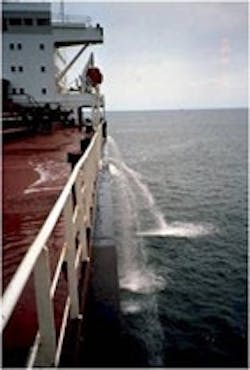EPA and Coast Guard Coordinate to Protect U.S. Waters
The U.S. Environmental Protection Agency (EPA) and U.S. Coast Guard (USCG) last week signed a memorandum of understanding (MOU) to work together to protect people’s health and the environment. The MOU outlines steps the agencies will take to better coordinate efforts to prevent and enforce against illegal discharges of pollutants from vessels, such as cruise ships and oil tankers.
"Protecting America’s waters is one of EPA’s top priorities, and our compliance and enforcement work is critical to meeting this challenge,” said Cynthia Giles, assistant administrator for EPA’s Office of Enforcement and Compliance Assurance. “By building on our partnership with the Coast Guard, we are working to improve the health of our nation’s treasured rivers, bays, harbors and estuaries.”
Under the MOU, USCG has agreed to incorporate components of EPA’s vessel general permit program into its existing inspection protocols and procedures to help the United States address vessel pollution in U.S. waters. The MOU creates a framework for improving EPA and USCG cooperation on data tracking, training, monitoring, enforcement and industry outreach. The agencies also have agreed to improve existing data requirements so that information on potential violations observed during inspections can be sent to EPA for evaluation and follow-up.
The vessel permit program applies to more than 61,000 commercial ships based in the U.S. and more than 8,000 foreign ships operating in U.S. waters. The vessel permit covers 26 types of discharge, such as deck runoff from rain, ballast water used to stabilize ships and wastewater from showers, sinks and laundry machines. These discharges may result in negative impacts on the environment, including the spread of invasive species from ballast water that can harm sensitive ecosystems. The vessel permit program also specifies corrective actions, self inspections and self monitoring, record keeping and reporting requirements.
Source: U.S. EPA
